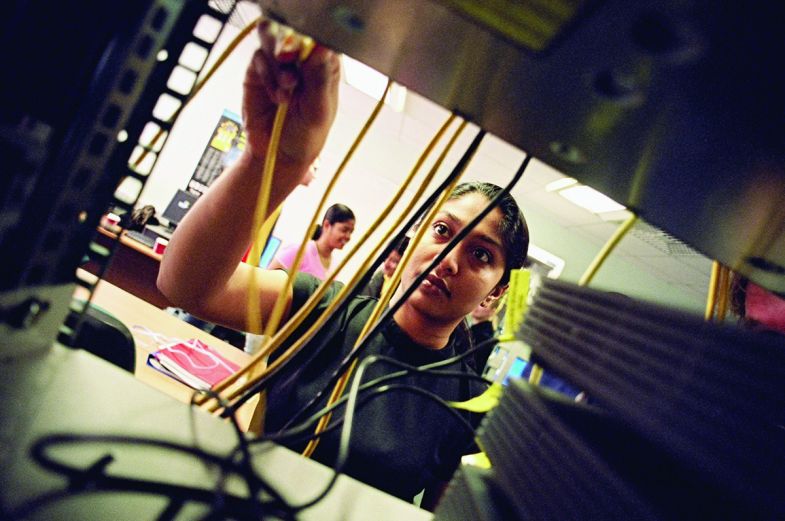Study a Computing degree abroad: A guide for tomorrow’s programmers
Computing, or Computer Science, might be one of the most relevant and important subjects in the world today. We’re living in the Information Age where digital technology defines the way we live, study and work. Tech and computing companies make up some of the largest and most powerful companies in the world and it’s still a growing industry around the globe. Computers influence our culture, our society – they’re an everyday part of our lives.
If the idea of studying Computing abroad sounds exciting to you but you’re worried about your grades, your language level, or simply fitting in as an international student then the International Foundation could be perfect for you, as it will prepare you for academic life in the UK. So why should you study Computer Science abroad? Here’s why.

A future-proof degree
Computer Science is one of the fastest growing degrees in the world, with more than 100,000 students enrolling globally*. In fact, Computing is now more popular than subjects like Law, History and Physics. If salary is an important factor for you, then Computer Science is frequently listed among the highest; appearing regularly in the top ten in both the UK and US. The UK and the US feature among 18 of the top 20** universities in the world for Computer Science, so you can be sure that studying Computing abroad is a superb investment for your future.

Diversity is key
Computer Science departments are some of the most culturally diverse among a university’s faculties, with many of those students coming from overseas. So, it’s very likely you won’t be the only international student in the class! One of the major advantages of studying Computing in a multicultural environment is learning different ways of thinking. Problem-solving and logic are a huge part of Computing, so different perspectives are vital to success. All the friends you’ll meet along the way may also provide some unique networking and job opportunities across the globe.
Beyond programming languages
In many ways, a programming language is a universal tongue that allows people from all over the world to work together. Of course, while it’s important to keep up with the latest developments in coding you should also take the opportunity to develop your English language skills. There’s no better environment to improve your English than studying and living among native speakers. And if you need that extra boost, there are many dedicated language courses you can enrol on as part of your studies. Communication and language skills are vital to working in many tech-based companies who often have a global reach.

Pinpoint your interests
Computer Science has broader applications beyond the well-known tech companies like Google and Facebook. Actually, almost every industry requires some level of Computing or IT support infrastructure. From Healthcare, Engineering and Retail to Manufacturing, Finance and Security – you can use the experience you gain on your degree in a variety of job sectors. But thinking ahead about what industry you want to work in can help you select the right modules on your degree, any relevant areas of research or even work experience.
Developing outside the classroom
Whilst a Computer Science degree will open up a world of options, you should never underestimate the value of extracurricular activities. From joining or starting a society or club, to working on your own Computing projects in your spare time – there are several things you can do to develop your skills and your confidence. Work experience or placements are also fantastic opportunities that will make you more employable, as well as give you the opportunity to network. Some degrees even offer work placements as part of the programme, so keep an eye out. It could be your first step to a dream career in Computing.
Study an International Foundation in Computer Science at City, University of London
Study an International Foundation in Engineering, Mathematics, Computer Science and Physical Sciences at the University of Exeter
Study a Foundation in Computing at Glasgow Caledonian University
Study an International Foundation in Science, Computing and Engineering at the University of Stirling
*Statistics taken from the Higher Education Statistics Agency (2017)
**Times Higher Education World Rankings by Subject 2018









